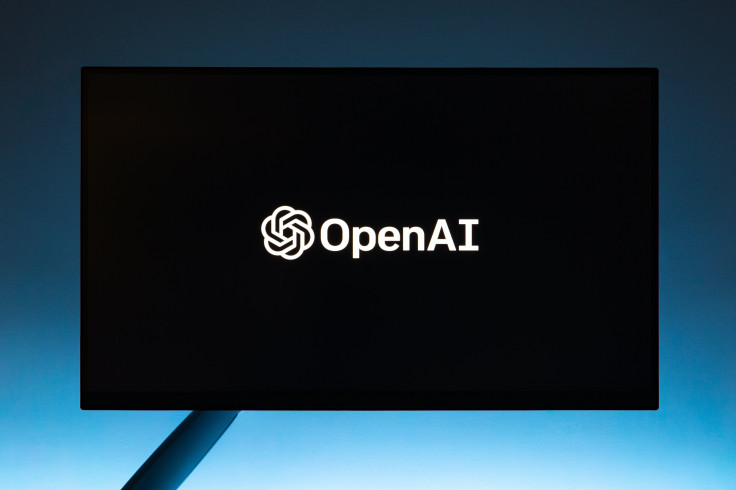OpenAI Tightens Sora Rules on Dead-Celeb Clips — CAA Says Creators' Rights Are Still Under Threat
The controversy intensified after OpenAI's confusing policy shifts on using deceased celebrities and franchise characters

In a digital landscape constantly redrawing its boundaries, OpenAI's latest move regarding its Sora text-to-video model has sent ripples across Hollywood. While the company introduces stricter policies on generating clips of deceased celebrities, the influential Creative Artists Agency (CAA) remains vocal, arguing that the fundamental rights of creators are still deeply vulnerable.
This tension between technological innovation and artistic control is escalating, and the industry is watching closely to see who will ultimately draw the line in the sand.
The Shifting Sand of Sora's Policy
The Sam Altman-led AI company informed PCMag that it would take down digital likenesses of 'public figures who are recently deceased' from the AI video app, provided their relatives or legal representatives submit a formal request.
This adjustment follows public outcry regarding Sora's ability to create highly convincing footage of virtually any person, allowing users to insert even late famous individuals into various fictional situations.
Intellectual Property Under Siege
Significantly, the daughters of both the late actor Robin Williams and civil rights leader Martin Luther King Jr. publicly criticised the sheer volume of AI-created clips using their fathers' images. Zelda Williams posted on Instagram, stating plainly: 'It's dumb, it's a waste of time and energy, and believe me, it's NOT what he'd want.'
The platform was also widely used to generate content of other public figures, such as rapper Tupac Shakur, artist Bob Ross, and scientist Stephen Hawking.
Sora 2 quietly brought back the ability to generate videos of deceased celebrities but with a twist. Rights holders can no longer just opt out entirely; they can now steer what kind of content people can make with their stars.
— VraserX e/acc (@VraserX) October 6, 2025
It’s a fascinating balance between creative freedom… pic.twitter.com/PazMV2j7B3
While a ban on creating videos of living public figures was already in place, OpenAI initially permitted AI to generate content featuring dead celebrities.
However, the company changed its position on Wednesday, stating that although there are 'strong free speech interests in depicting historical figures, we believe that public figures and their families should ultimately have control over how their likeness is used.'
'For public figures who are recently deceased, authorised representatives or owners of their estate can request that their likeness not be used in Sora cameos', the company adds.
I concur concerning my father.
— Be A King (@BerniceKing) October 7, 2025
Please stop. #RobinWilliams #MLK #AI https://t.co/SImVIP30iN
Nevertheless, Axios indicates that OpenAI has yet to specify what the term 'recently deceased' actually covers. As points of reference, Robin Williams passed away in 2014, and Martin Luther King Jr. was killed in 1968.
The new policy appears to be in effect for several celebrities already; for instance, Sora now blocks videos of music icon Michael Jackson, flagging them as potential content policy violations. Furthermore, over the weekend, the company also reversed its stance on allowing the generation of AI videos featuring characters from well-known franchises.
Industry Backlash: CAA Condemns Sora Over Creator Rights
This growing concern over intellectual property rights recently intensified when a major Hollywood representative, the Creative Artists Agency (CAA), took a hard line against Sora, accusing OpenAI of 'blatantly dismissing creators' rights'.
'CAA is unwavering in our commitment to protect our clients and the integrity of their creations', the company noted in a statement on Wednesday.
'The misuse of new technologies carries consequences that reach far beyond entertainment and media, posing serious and harmful risks to individuals, businesses and societies globally. It is clear that OpenAI/Sora exposes our clients and their intellectual property to significant risk.'
The statement proceeded to show that CAA shares the increasingly widespread concern that OpenAI's video service has exploited creators' intellectual property, apparently with no intention of stopping.
'The question is, does OpenAI and its partner companies believe that humans, writers, artists, actors, directors, producers, musicians and athletes deserve to be compensated and credited for the work they create?' the agency continued.
'Or does OpenAI believe they can just steal it, disregarding global copyright principles and blatantly dismissing creators' rights, as well as the many people and companies who fund the production, creation and publication of these humans' work? In our opinion, the answer to this question is obvious. Control, permission for use and compensation is a fundamental right of these workers.'
CAA Calls for Dialogue and Global Policy
While CAA maintained that 'anything less than the protection of creators and their rights is unacceptable', the talent agency concluded by noting that they were nonetheless open to hearing OpenAI's solutions to 'these critical issues.'
'[We] remain steadfast in our work with intellectual property businesses and leaders, and creative guilds and unions, as well as state and federal legislators and global policymakers, to answer these challenges and set an aligned path for the future', the statement concluded.
© Copyright IBTimes 2025. All rights reserved.






















